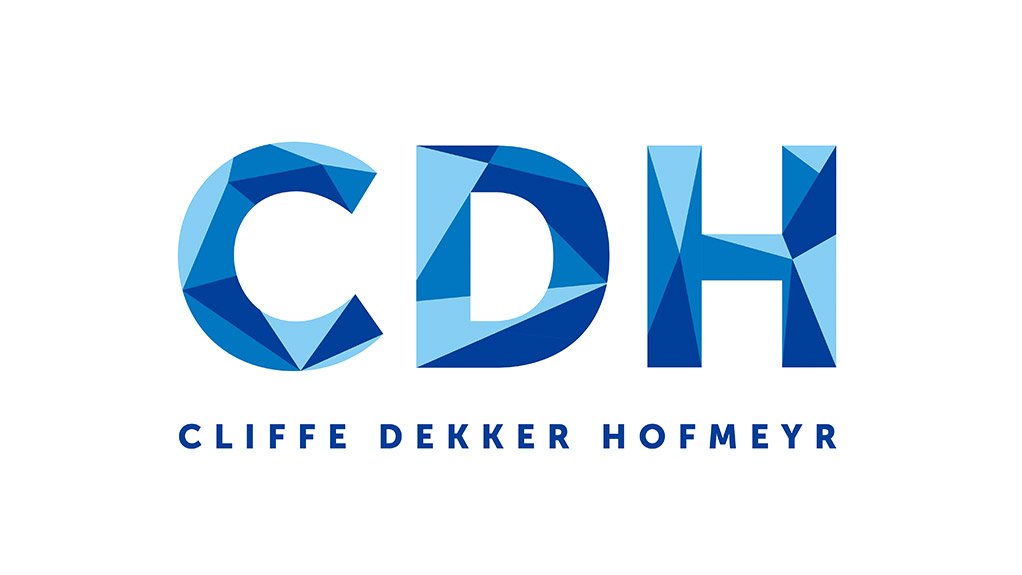The seventh edition of Best Lawyers in South Africa has been released and Cliffe Dekker Hofmeyr’s lawyers have once again featured prominently on the list. Most notably, David Thompson is the Best Lawyers’ 2015 Cape Town Mergers & Acquisitions Lawyer of the Year and Peter Hesseling is Best Lawyers’ 2015 Cape Town Corporate Lawyer of the Year.
According to bestlawyers.com, for a lawyer to be included in the best lawyers list, they must first be nominated, then their name appears on a ballot for a specific practice area and geographical region. Pending positive evaluation, and good standing with the Law Society/Bar Association, they may be included in the Best Lawyers list.
Nine directors in Cliffe Dekker Hofmeyr’s Cape Town office were included in the Best Lawyers List and 25 lawyers from the firm’s Johannesburg office.
“The firm's approach to the integration of CDH's service and sectoral offerings, the addition of value-added services, a focus on innovation, partner collaboration and client–tailored solutions, is made easier because of the impressive calibre of people (both professional and support staff) behind the CDH brand. Our consistent focus on expertise and an unwavering commitment to our clients business needs lies at the heart of what we do and it is gratifying that even more of our partners are being acknowledged in our market," according to Brent Williams, CEO of Cliffe Dekker Hofmeyr (who is also featured on the Best Lawyer’s list).
Peter Hesseling, Director in CDH's Corporate and Commercial practice in Cape Town, says in terms of trends in transactional and corporate law at present that the globalisation of top South African companies continues apace, despite growth prospects in the home market remaining subdued and perhaps, because of this fact.
He explains that exchange controls have become relaxed and shareholders are, in many cases, expecting a degree of geographic diversification.
"As a result we have seen a number of our South African based clients embarking on interesting cross-border acquisitions and capital market transactions," he says.
The prospect of tax incentives for South African companies investing on the rest of the continent is a welcome initiative and if implemented, will be very welcome news for our continent and its developmental aspirations.
"Despite the subdued local economic environment, we are still seeing a reasonable level of incoming cross-border transactions. Private equity deals have also been picking up, both on the exit and acquisition side, with secondary trades between private equity funds making up a significant proportion of transactions," Hesseling added.
David Thompson, Director and Regional Cape Practice Head of Corporate and Commercial at CDH, says that merger and acquisition activity in the Cape region has been strong particularly, in the real estate, retail, renewable energy, healthcare and asset management sectors in the past year.
“The real estate sector has seen not just regular acquisitions and JSE listings but also increased cross border transactions such as inward listings and acquisition of assets in Africa and Europe. For example, we helped a listed client invest in Croatia, which offered high quality property at good yields with low borrowing costs. In the rest of Africa, there have been a number of real estate deals underpinned by the big retailers who are expanding outside SA,” Thompson says.
He explains that renewable energy is also stimulating M&A as developers and early stage investors are looking to structure disposals of their interests in Renewable Energy programmes, while long-term institutional investors are looking to buy into de-risked and fully operational projects. This is resulting in the development of a secondary market (which CDH anticipated), which may include special purpose acquisition companies (SPACs) which the JSE listings requirements now specifically provide for. A SPAC may list without assets, subject to acquiring viable assets within 24 months, failing which it returns capital to investors.
"The revised Black Economic Empowerment Codes of Good Practice, which became effective in May 2015 are stimulating M&A through BEE restructuring in South Africa in general and we should also see more of these deals in the coming months." he says.
“In terms of the tools and techniques of M&A, the statutory merger is increasingly being utilised. This novel introduction to SA law in 2011 is now gaining considerable traction. It is very flexible particularly in merging two companies into one without requiring all formalities which might otherwise be applicable regarding asset transfer, liquidation and consents. We have recently used this tool in M&A deals in the oil & gas and, hospitality sectors to optimise deal process and cost and minimise risk for clients" Thompson concluded.
Submitted by Cliffe Dekker Hofmeyr
EMAIL THIS ARTICLE SAVE THIS ARTICLE
To subscribe email subscriptions@creamermedia.co.za or click here
To advertise email advertising@creamermedia.co.za or click here











